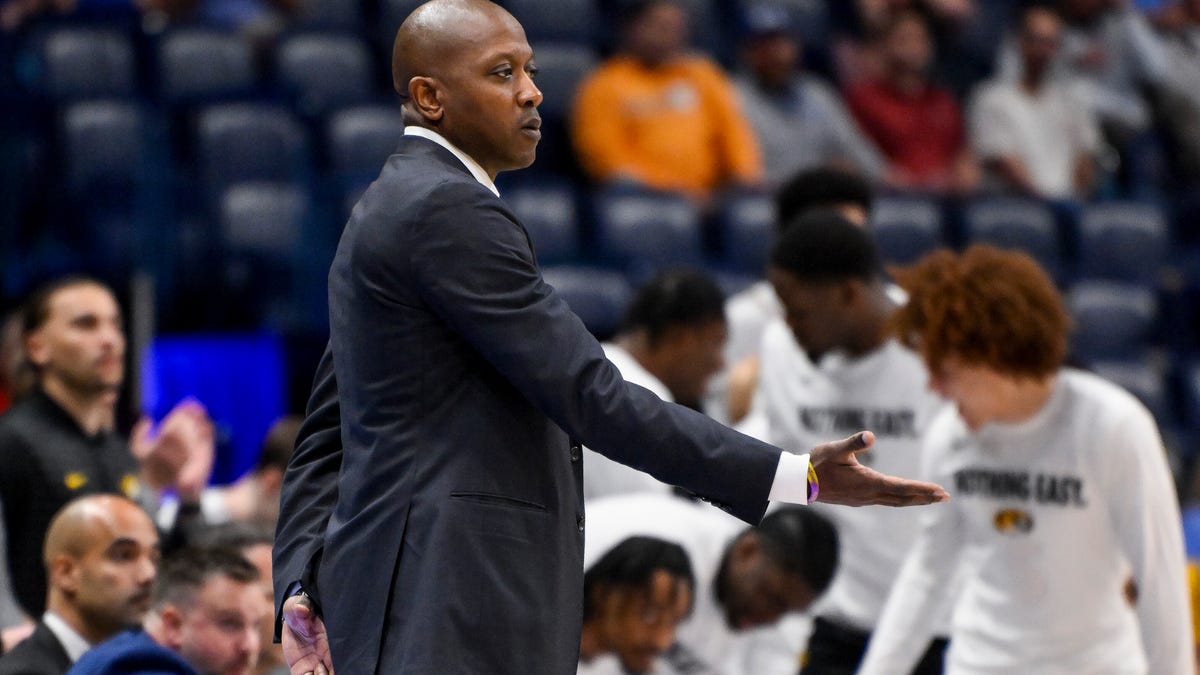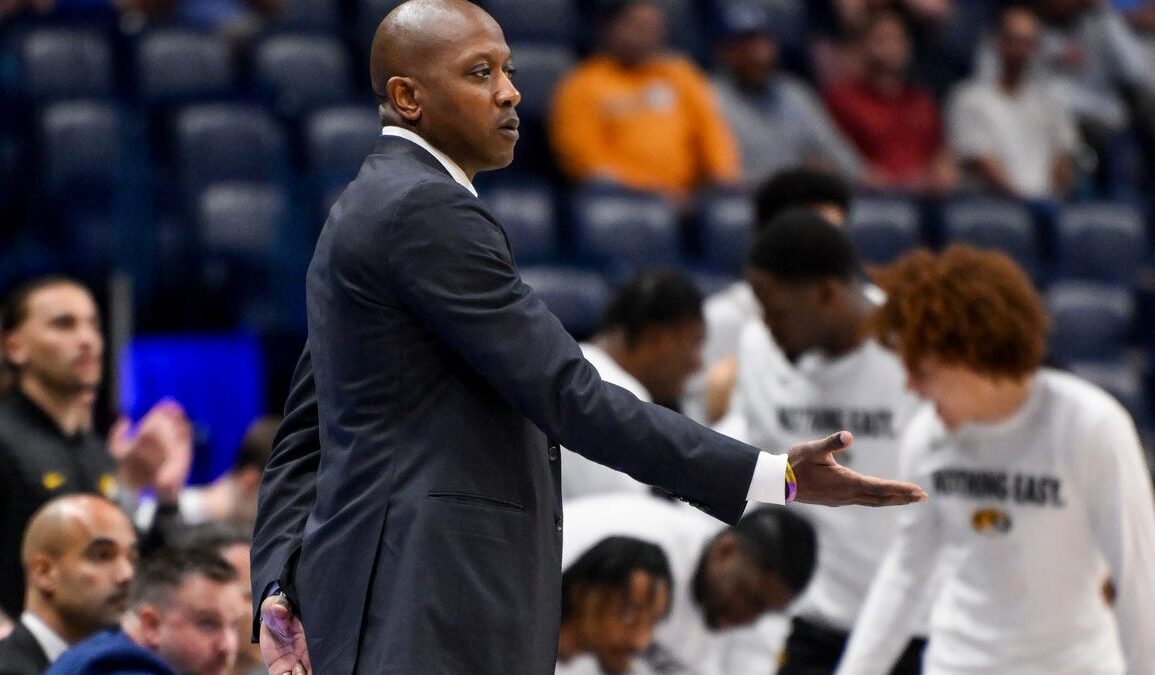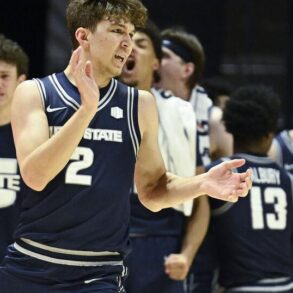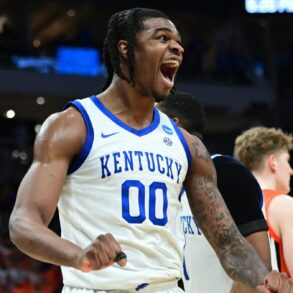
ST. CHARLES, Mo. — Since taking over in Columbia, Dennis Gates feels like he has worn a lot of hats in conjunction with his main title of Missouri men’s basketball coach.
“I’ve also been the president of operations. I’ve been a GM,” Gates said in response to a question from the Tribune on Tuesday. “I’ve been holding these professional sort of titles that speak to the growth of our game.”
But, as the college athletics landscape prepares for a monumental shift, Gates is ready to shelve one of those caps.
“College athletics is changing,” Gates said. “We’re at the forefront of innovation.”
Mizzou basketball is going to hire a general manager in the near future. A job posting for the position has been listed on the UM System website since April 15.
The revenue-sharing model for college athletics is fast approaching, even as approval for the landmark House v. NCAA case stalled when U.S. District Judge Claudia Wilken told the NCAA, essentially, to figure out a way to phase in roster limits before she approves the proposed settlement.
If and when the settlement is approved, universities will be allowed to distribute $20.5-million worth of revenue with student-athletes, making roster building and retention a great deal more expensive — and potentially time-consuming.
To address that need, hiring general managers has become an increasingly popular trend across Power-conference sports, most commonly in football and men’s basketball.
Some GMs are akin to those you find in the NFL or NBA — the front-office type tasked with handling the day-to-day and business side of a team’s operations.
Some teams are leaning more toward popular alumnus or celebrities — like Sacramento State and newly appointed GM Shaquille O’Neal or Davidson and recently named assistant GM Steph Curry — in what is likely a revenue-generating move as probable high-profile boosters.
Missouri’s general manager seems likely to fall under the first category: A business-oriented staffer who will focus on relationships with agents, NIL negotiations, the economics of modern college athletics and the day-to-day, ‘front-office’ functions of running a high-major basketball program.
On Tuesday at an athletic department caravan stop in St. Charles, Gates told the Tribune that he thought about making the move after his first year on the job, which would have been after the 2022-23 campaign — and well ahead of the curve. The coach said he decided against it as he wanted to “keep that role as my responsibility, because I knew what I needed to take place.”
But, the times they are a-changin’.
Revenue-sharing adds another dimension to roster-building and retention. Even now, with the transfer portal closed for more than a week, the Tigers are two players shy of where roster limits are expected — depending on the House settlement case — to land.
There appears to be no rush in the Tigers’ corner, as they were focused more on retention this offseason, but there are still some significant needs — shooting guard, primarily — on next season’s team.
Navigating the transfer portal has become a tricky task. Gates called it “recruiting combat” Tuesday.
Top-end players, reportedly, are coming with higher and higher price tags. Some reported figures are in the $4 million-per-season range. Price tags for potential starters are frequently eclipsing seven-figures.
Right now, navigating that process all falls on Gates and his staff, sometimes with the season still ongoing. Retention conversations, and the NIL money that requires, are going on between coaches and players with games still on the calendar.
“The portal is a tricky, tricky time frame,” Gates said, “and I’m excited about the transition of NCAA basketball, but also what it’s going to look like as we settle into the realities.”
In the future, navigating a bulk of the portal process is likely to fall on whoever is named GM.
Gates has worn the hat. Passing those roles onto somebody seems to suit him in the face of the new landscape.
“Now, you can add the dimension of the changing times around us. I thought it’s the right time, or think it’s the right time now, to do it,” Gates said. “Ultimately, what do I think it’ll allow me to take place in? It’ll allow me to continue to do other things without dividing time. Agent relationships is a real thing. It’s very important throughout the season. It’s very important in the offseason. And (hiring a GM) frees any staff up and allows guys to really focus on the players in your program.”
This post was originally published on this site be sure to check out more of their content.








